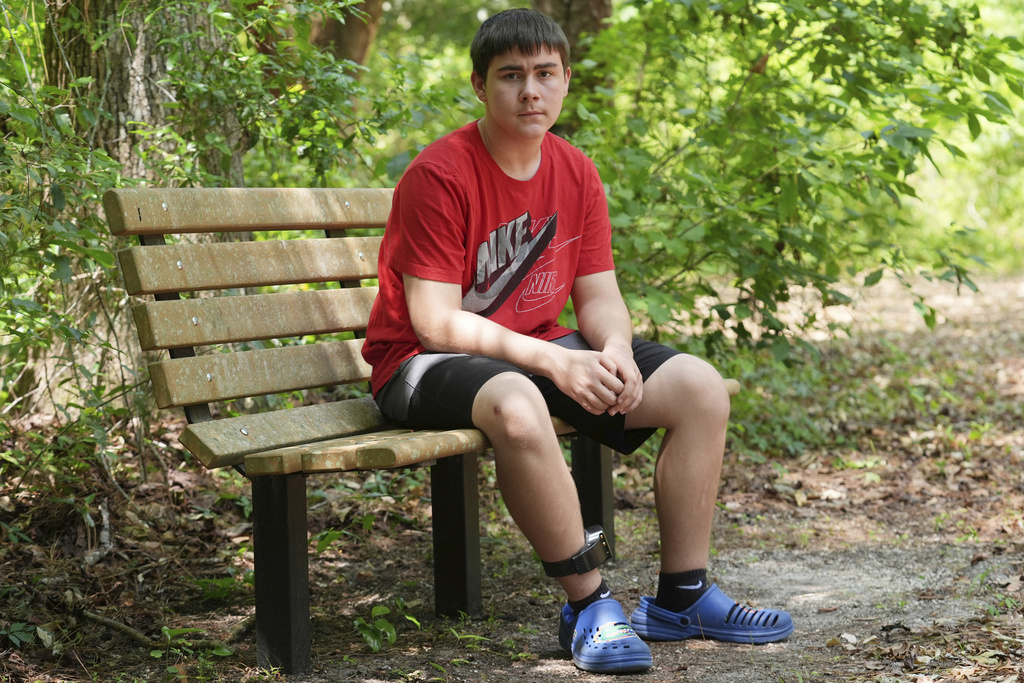For these incarcerated students, online school has been a disaster

A Challenging Path to Freedom
In Gainesville, Florida, 15-year-old Cayden Gillespie faced a daunting challenge: completing three school assignments daily to earn his freedom. However, the virtual learning environment he was placed in proved difficult to navigate. Cayden found himself struggling with online pre-algebra tests, which were filled with complex text and lacked support from teachers. His frustration led to a breakdown, as he threw a metal desk against the wall, prompting a security response.
The situation highlights a broader issue within Florida’s juvenile detention system. The state has adopted an online learning model for students in long-term confinement, aiming to provide uniform standards and tailored classes. However, this approach has faced criticism for its effectiveness, especially considering that students often spend seven to 11 months in residential commitment centers.
The Impact of Virtual Learning on Incarcerated Youth
Florida Virtual School (FLVS), one of the largest online school systems in the country, was introduced into residential commitment facilities. Officials argued that this would allow students to continue their education after release, helping them reintegrate into local public schools. However, students, parents, and staff have reported significant challenges with the program.
Many students find the online coursework difficult to access or understand, with little support from in-person or online staff. Letters from incarcerated students obtained by The Associated Press describe struggles with the program, including a lack of hands-on assistance and unclear instructions. One student wrote, “They don’t really hands on help me.”
Cayden's experience at the Orlando Youth Academy illustrates these issues. He arrived expecting a short stay but was told it could last six to nine months. This revelation shocked his family, who had hoped for a quicker resolution. Cayden's time in detention extended to 19 months due to various incidents, including a "level freeze" after he threw a desk in frustration.
Life in Detention and the Struggles of Online Learning
Life in detention is marked by strict routines and limited privacy. Students wake up early, clean their cells, and face monitoring during phone calls and family visits. To cope, Cayden turned to drawing and writing, creating a story about a hero named One.
The transition to online learning brought new challenges. Before the shift, Cayden had in-person teachers who provided support. However, the move to virtual schooling left him without the necessary assistance, particularly for students with special needs. Federal law requires detention center schools to follow individualized education plans (IEPs), but Cayden did not receive the support he needed.
The Consequences of Virtual Schooling
The impact of virtual schooling extends beyond academic struggles. Students like Xavier Nicoll, who has ADHD, have faced repeated issues with online learning, leading to further detention and extended stays. Xavier’s case highlights the difficulties of navigating online school, with multiple laptop breakages and subsequent arrests contributing to his prolonged confinement.
Staff reports indicate an increase in arrests and interventions following the adoption of virtual schooling. While the Department of Juvenile Justice claims other factors may explain these trends, the correlation between online learning and behavioral issues remains a concern.
Reintegration Challenges
For many students, reintegration into the community is fraught with challenges. Cayden, now released, faces the task of restarting his education. His family is navigating the complexities of finding suitable schooling options, with limited support from the system. The local school district suggested a charter school, but concerns about transportation and attendance remain.
Cayden’s probation requires him to attend school, adding pressure to his already challenging situation. His family hopes for a supportive environment that can help him catch up on missed coursework and successfully reintegrate into society.
The Broader Implications
The experiences of Cayden and others highlight the need for a more effective and supportive educational system for incarcerated youth. As the debate over virtual learning continues, it is clear that the current approach falls short for many students, leaving them without the resources and support they need to succeed.
Post a Comment for "For these incarcerated students, online school has been a disaster"
Post a Comment